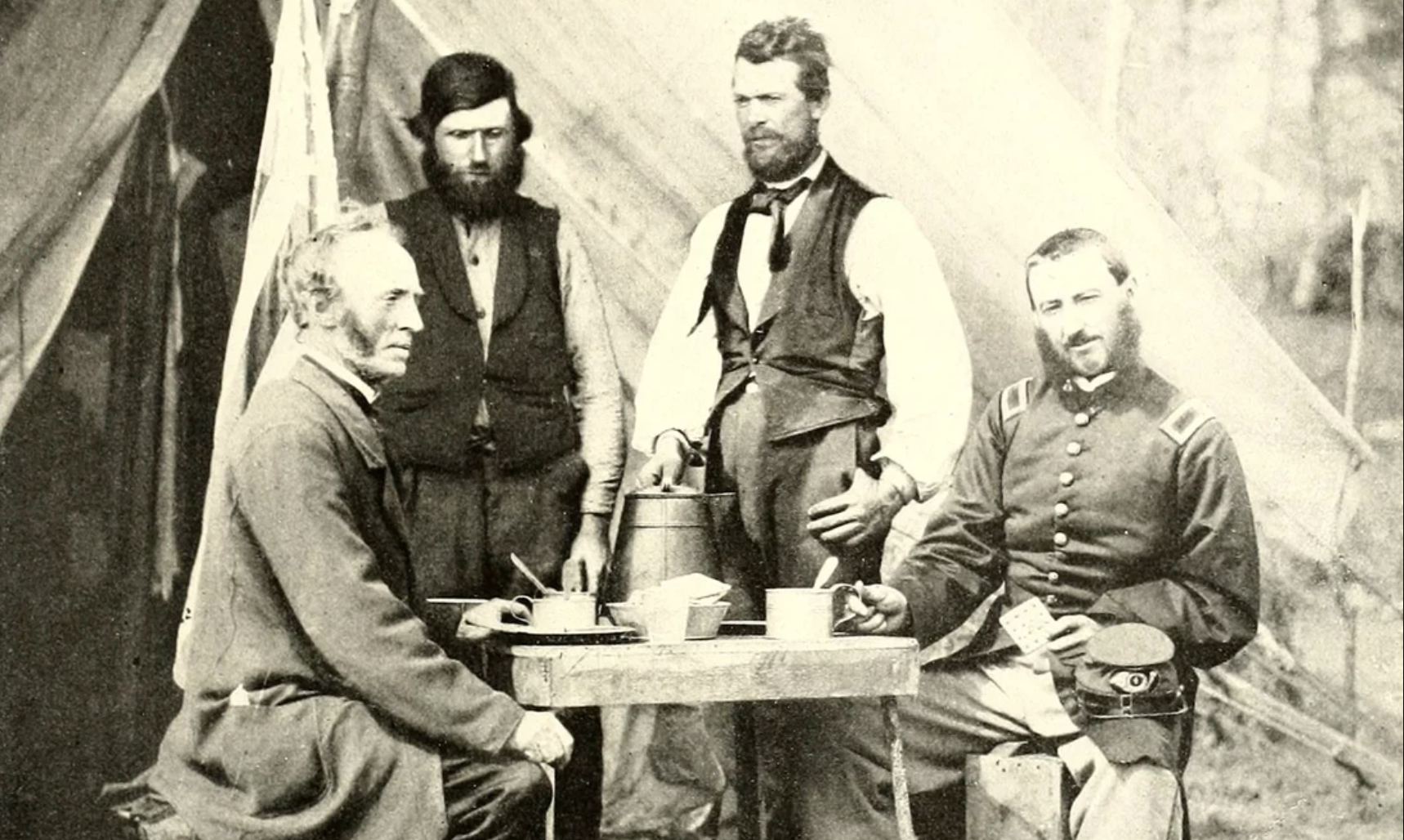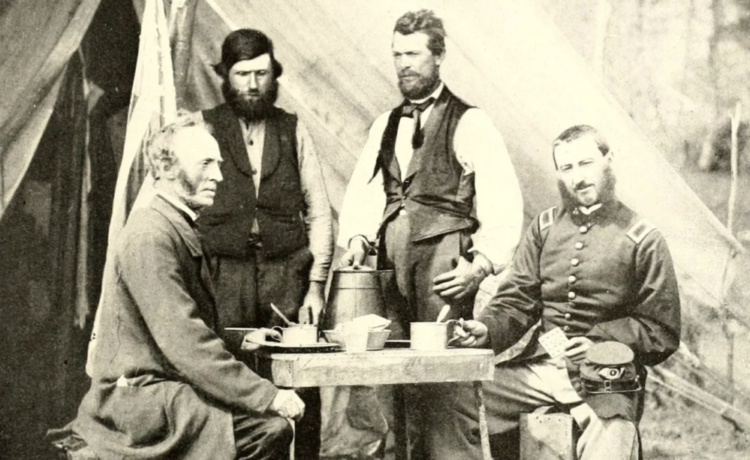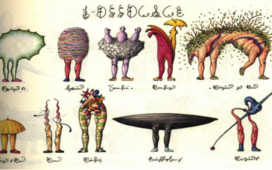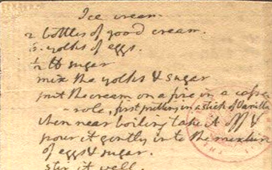

Americans doing “e‑mail jobs” and working in the “laptop class” tend to make much of the quantity of coffee they require to keep going, or even to get started. In that sense alone, they have something in common with Civil War soldiers. “Union soldiers were given 36 pounds of coffee a year by the government, and they made their daily brew everywhere and with everything: with water from canteens and puddles, brackish bays and Mississippi mud,” write NPR’s Kitchen Sisters. “The Confederacy, on the other hand, was decidedly less caffeinated. As soon as the war began, the Union blockaded Southern ports and cut off the South’s access to coffee.”
Smithsonian National Museum of American History curator Jon Grinspan tells of how “desperate Confederate soldiers would invent makeshift coffees,” roasting “rye, rice, sweet potatoes or beets until they were dark, chocolaty and caramelized. The resulting brew contained no caffeine, but at least it was something warm and brown and consoling.” The stark caffeination differential that resulted must count as one of many factors that led to the Union’s ultimate victory. Part of what kept their coffee supplies robust was imports from Liberia, the African republic that had been established earlier in the nineteenth century by freed American slaves.
“The Union’s ability to purchase and distribute coffee from Liberia, alongside other sources, was helping the army’s morale,” writes Bronwen Everill at Smithsonian.com. “In December 1862, one soldier wrote that ‘what keeps me alive must be the coffee.’ ” Meanwhile, a northern general famously gave this advice to other generals: “If your men get their coffee early in the morning, you can hold.” Many harrowing battles later, “at the Confederate surrender at Appomattox in April 1865, Michigan soldier William Smith noted that the Confederate soldiers present were licking their lips hopefully, with ‘a keen relish for a cup of Yankee coffee.’ ” (Johnny Reb had presumably acquired this taste between those battles, when soldiers from both sides would meet and exchange goods.)
The Civil War in Four Minutes video above explains the coffee-drinking Yankee’s habits in more detail. “If there was an early morning march, the first order of business was to boil water and make coffee,” says actor-historian Douglas Ullman Jr. “If there was a halt along the march, the first order of business when the march stopped was to get that hot water going to drink more coffee.” Soldiers would keep their coffee and meager sugar rations in the same bag in order to ensure “the tiniest hint of sugar in every drop. Think about that the next time you order your caramel soy macchiato.” But such beverages were still a long way off after the Civil War, which gave way to the era of what we now call the Wild West — and with it, the heyday of cowboy coffee.
Related content:
How Humanity Got Hooked on Coffee: An Animated History
Watch an Exquisite 19th Century Coffee Maker in Action
The History of Coffee and How It Transformed Our World
Philosophers Drinking Coffee: The Excessive Habits of Kant, Voltaire & Kierkegaard
Based in Seoul, Colin Marshall writes and broadcasts on cities, language, and culture. His projects include the Substack newsletter Books on Cities and the book The Stateless City: a Walk through 21st-Century Los Angeles. Follow him on Twitter at @colinmarshall or on Facebook.















